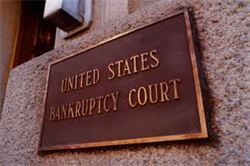
Sometimes even the most responsible people get into deep financial trouble through no fault of their own or with every intention of remaining solvent. Major life changes, such as a divorce, unemployment, or the death of a spouse, can wreak financial havoc with no relief in sight. Congress enacted bankruptcy laws in order to give honest debtors a fresh start.
I am here to help you get control of your finances and move toward a future free of crippling debt. Filing bankruptcy can stop foreclosure and lawsuits and help you keep many of your personal belongings.
Making the decision to file bankruptcy is not easy. Getting all the information about bankruptcy and answers to your questions so that you can make an informed decision is very important.
What is Chapter 7 bankruptcy?
Bankruptcy is a process under federal law that allows qualifying debtors who owe more money than they can pay to eliminate many of their debts.
How Can I Be Sure This Is The Best Way?

Also known as liquidation (converting assets into money) or a straight bankruptcy, Chapter 7 bankruptcy is the most common form of bankruptcy filing. This type of bankruptcy filing accounts for as much as 65% of all consumer bankruptcy filings.
This is one of the faster ways of starting new, and more so if there are no objections from any of the parties involved. Ordinarily, most (if not all) debts would be discharged within months of the attorney filing a bankruptcy petition.
Will bankruptcy stop all the harassing phone calls and mail from bill collectors?
Yes! An "automatic stay" will take effect when you file your case. It will stop the creditor harassment, including lawsuits, immediately.
Will bankruptcy stop a wage garnishment from a lawsuit over an unsecured debt?
Yes. The automatic stay will stop the garnishment.
How long will bankruptcy remain on my credit report?
Bankruptcy can remain on your credit report for up to ten years.
What does "secured" or "unsecured" debt mean?
Secured debt is a collateralized debt that allows a creditor to make a claim on an asset (e.g., your home, real property or car). Unsecured debt is held by creditors that have no claim to your assets (e.g., credit cards).
What happens if I file and discover another debt after filing?
Your lawyer can amend your case to include any additional debts you may find after the case is filed.
What happens when one spouse files without the other spouse?
You need to discuss this carefully with your attorney. The spouse that doesn't file may end up being responsible for some or all of the debts.
Can I be held responsible for a debt that I co-signed?
Yes. You can be held responsible for any debt that you signed and agreed that you would pay in the event that someone else failed to make the payments (co-signed).
Can all debts be discharged?
No. There are certain debts like child support, alimony, student loans, government loans, back taxes and other debts that cannot be discharged.

Will I lose my social security payments if I file?
No.
Am I going to lose my personal property if I file bankruptcy?
There are exemptions, both state and federal, that allow you to keep a certain amount of personal property for yourself instead of turning it over to the bankruptcy estate. Your attorney will explain how these exemptions apply to people who file bankruptcy in your state.
Can I pick which debts to put in the bankruptcy?
No. You must include all of your debts.
What is the ultimate aim of filing for bankruptcy?
Filing for bankruptcy is an opportunity for a debtor to emerge out of a financial crisis and start afresh and Chapter 7 of the bankruptcy code is the way to achieve this end relatively quickly. Under Chapter 7 of the bankruptcy code all non-exempt property of the debtor is sold and the proceeds from the sale are distributed to the creditors. In most cases where Chapter 7 is brought into force the debtor has no assets to lose, therefore the fresh start takes place relatively fast.
When will I get my discharge?
Generally a Chapter 7 bankruptcy discharge is received 60 days after the "341 meeting" which is the first (and usually, the only) meeting of creditors. In contrast, you will not see a Chapter 13 bankruptcy discharge until you have completed the payments under the Chapter 13 plan, which lasts three to five years.
How Does Chapter 7 Bankruptcy Work?

A trustee is appointed who collects all non-exempt property, sells the assets and distributes proceeds from this sale to appropriate creditors. Chapter 7 is different from other bankruptcy filings because the debtor does not need to make a payment to the trustee.
Even though in some cases this would mean that you will lose all your non-exempt assets, this need not always be the case. It is strongly recommended that if you are apprehensive and feel you will lose your assets, discuss the matter with a bankruptcy attorney at the law office of Thomas A. Morton, Attorney.
Under Chapter 7 bankruptcy, the debtor receives a discharge on all dischargeable debts. There are 19 general classes of debt, such as child support, most taxes and student loans, that are not discharged under Chapter 7 bankruptcy.
An added advantage with Chapter 7 bankruptcy is that by signing a reaffirmation agreement a debtor can continue to pay for a car loan or a mortgage on their home (and keep their car or home).
Who Can File For A Chapter 7 Bankruptcy?
The reverse of this question would be more appropriate to answer. Debtors engaged in business would usually not like the prospects of liquidation and Chapter 11 might be a better option for such individuals associated with corporations and partnerships. Also, individuals with regular income in a debt situation may be better suited to file a Chapter 13 bankruptcy. Generally, debtors who earn less than the state median income for their household size or who meet a means test qualify for Chapter 7 bankruptcy. Also, any person who has been granted a Chapter 7 discharge (or completed a Chapter 13 plan) within the last 8 years cannot file for a Chapter 7 bankruptcy.
How Do I File For A Chapter 7 Bankruptcy?
Filing for bankruptcy is the fulfillment of a clearly laid set of rules and procedures, but it is as complex as it seems simple. You need to be sure about just one thing: "Do you need to file for bankruptcy?" Once you are sure that you qualify for Chapter 7 bankruptcy, we will file your petition and all applicable schedules and statements.